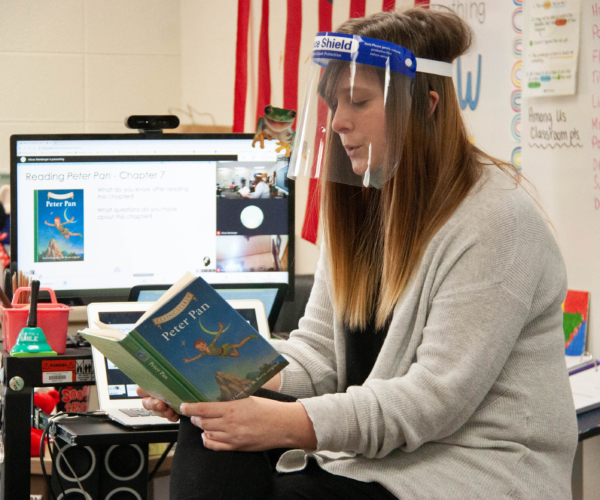The COVID experience and the shift to online learning has shown Superintendent Jill Underly that students in her rural school district are pretty resilient.
Underly, who leads the Pecatonica Area School District, believes her kids are going to OK, though she plans to work with local providers to expand health care in the coming months.
“There’s a lot of trauma from this year and last that we haven’t addressed,” Underly says. “It will become more obvious when all the kids are back.”
Some students, in fact, have thrived with online learning and Underly says rural districts should work to continue to provide virtual instruction, perhaps via a regional academy that could accommodate students in special education.
More from DA: How 4 rural districts worked together to keep students in-person
What keeps Underly up at night is that educators have had a much harder time monitoring students’ wellbeing during remote instruction.
“Reporting to child protective services has dropped significantly because educators are the No. 1 reporters,” Underly says. “We see the kids, the kids talk to us, they tell us—or we know—when something’s wrong.”
She also added monitors to buses but stopped using them when it became clear the students were following safety protocols while being transported back and forth to school, Underly says.
Broadband access, however, will continue to be a challenge even as schools emerge from COVID. Southern Wisconsin’s hills, deep valleys and rock outcroppings can make cellular service unreliable for both students and staff.
More from DA: 5 ways to overcome compassion fatigue in K-12 education
Last spring, one Pecatonica teachers turned their minivan into a mobile learning office.
She says the country may need an initiative to bring broadband to rural America in the same way New Deal programs brought electricity and phone service to rural communities in the 1930s.
“If you think about rural Wisconsin or rural America, the downtowns are dying if they’re not already dead,” Underly says. “If we had strong internet, it would change our lives. People could move here, people could work from home, people could have businesses in rural America.”









